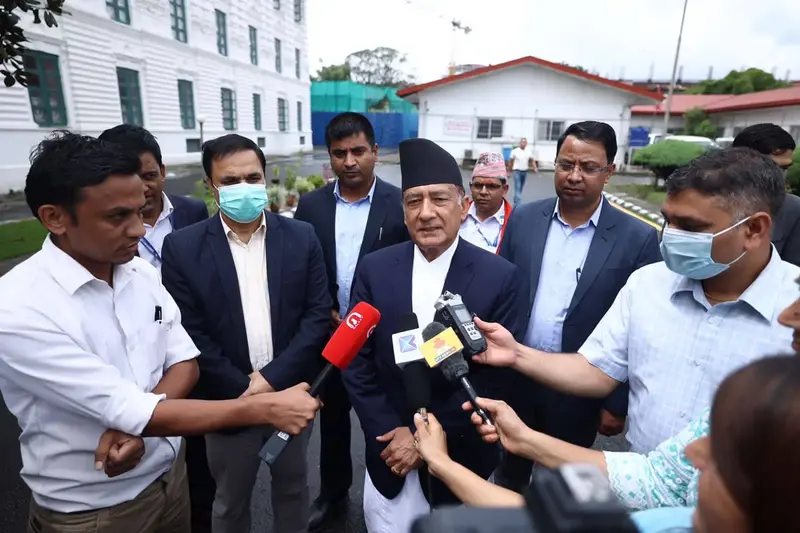Nepali political parties are gearing up for crucial general and provincial elections slated for November 20.
A day after the government decided to hold general elections in late autumn, a meeting of the ruling coalition is taking place on Friday.
Top leaders of the ruling parties, the Nepali Congress, the CPN-Maoist Center, the CPN-Unified Socialist and Janata Samajbadi, are attending the meeting being held at Baluwatar, the official residence of the prime minister.
The ruling party leaders are holding discussions on continuing with the Nepali Congress led electoral alliance.
A meeting of the cabinet presided by Prime Minister Sher Bahadur Deuba on Thursday decided to goa ahead with the polls on November 20, according to the government spokesperson Gyanendra Bahadur Karki.
"Federal and provincial elections will be held in one phase as recommended by the Election Commission," Karki told reporters after the cabinet meeting held at Singhadurbar, the central administrative secretariat in Kathmandu, the Nepali capital.
With the declaration of the elections, the five-party coalition government headed by Sher Bahadur Deuba has now turned into a caretaker one and can't make any crucial decisions.
The government's decision comes a day after the five ruling parties agreed to hold hold federal and provincial elections within November.
The communist Party of Nepal-Unified Marxist Leninist (CPN-UML), the main opposition party, has also praised the government's decision to hold elections.
"Today's cabinet decision is welcome news. We were asking the government for holding elections as early as possible. Because, periodic elections are a natural and routine exercise in a democracy," KP Sharma Oli, the chairman of the CPN-UML, told a group of correspondents affiliated with various foreign media outlets based in Kathmandu, on Thursday.
Earlier on July 6, Nepal's Election Commission recommended the government to hold the federal and provincial elections in one phase on November 18.
In 2017, Nepal had conducted federal and provincial elections on two different dates—November 26 and December 7. However, this time the election authorities suggested the government hold elections in one phase for two reasons.
"The first is it would be cost-effective and the second is it would be comfortable for the commission for logistic arrangements," Chief Election Commissioner of Nepal, Dinesh Chandra Thapaliya, told a media briefing on Thursday, hours after the government announced dates for elections. The chief election commissioner said that they are fully committed to conduct elections in a free and fair manner in the stipulated timeframe.
A spokesperson at the Election Commission estimated that approximately 18600000 voters will take part in elections across the country.
"We now have 107 days left for holding elections. We will make required preparations accordingly," Shaligram Sharma Poudel, the spokesperson for the commission, told India Narrative.
The main opposition party leader claimed that the current coalition government does not have moral grounds to hold elections because of its bad performance and misrule since it came to power in July last year.
On May 13 this year, Nepal held elections to pick a fresh set of people's representatives for 753 local levels in a single phase.
From the upcoming federal elections, 165 members will be elected to the House of Representatives, the lower house of federal parliament, under the First Past the Post electoral system and 110 will be elected under the proportional representation system.
Likewise, for seven provincial assemblies, 330 members will be elected under the direct system and 220 will be elected under the proportional system.
As 107 days left for holding of the provincial and federal elections, political parties have started their election campaigns across the country.
As per the constitution, Nepal holds local, provincial and federal elections every five years. This is the second time the Himalayan country holds federal and provincial elections after it adopted its first democratic republic constitution in September 2015.
The country's national charter, also the first post-war full-fledged constitution, had federated the country into seven provinces and 753 local units.
Although Nepal is a Hindu majority nation, the constitution declared it as a secular and democratic republic following years of political instability.
Before entering into a republican set-up in 2007, Nepal witnessed the overthrow of 240-year Shah Monarchy and ten-year armed conflict that began in 1996.
Also Read: Nepal’s ruling Congress party going in for poll pact with coalition partners




















